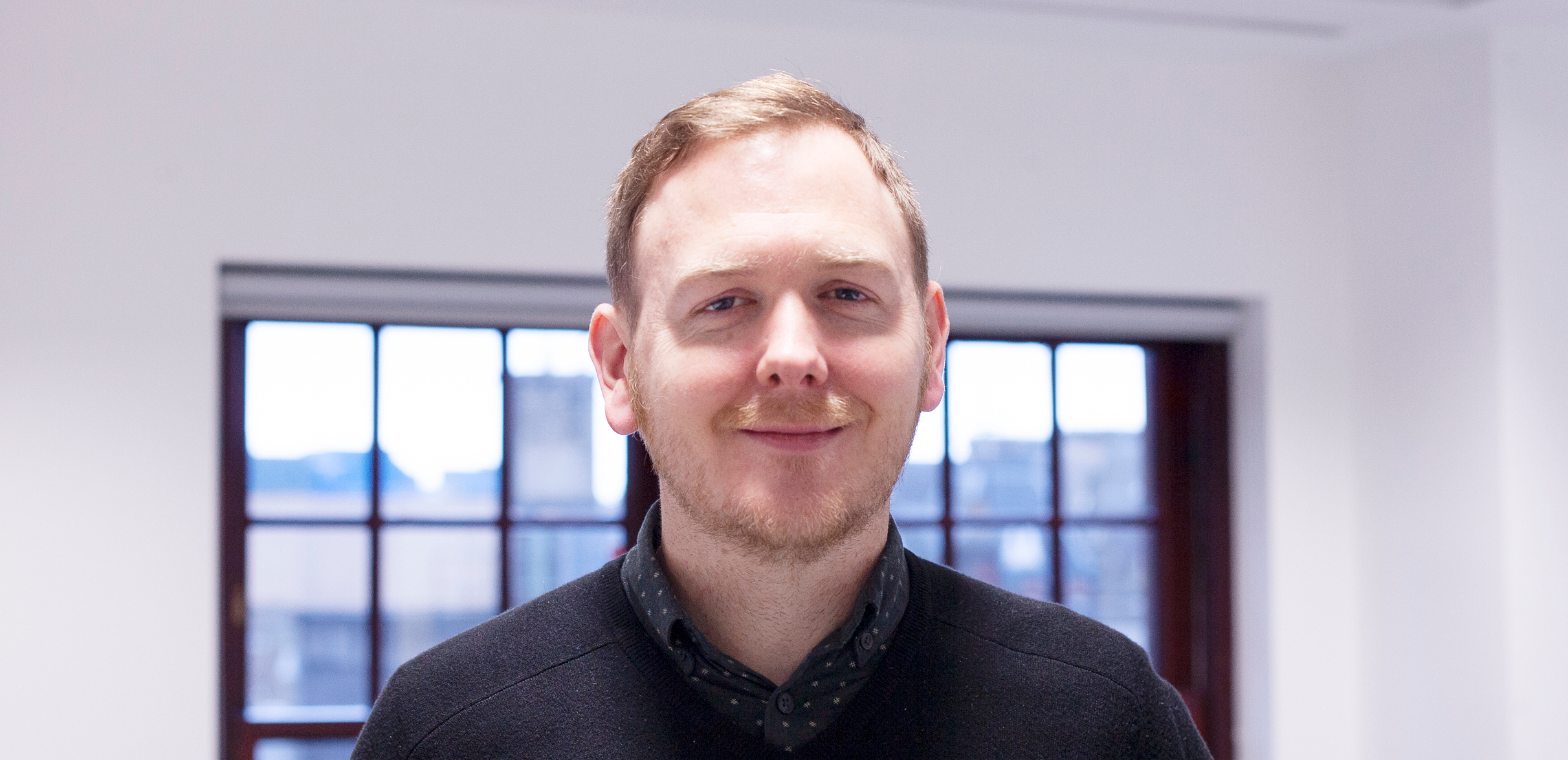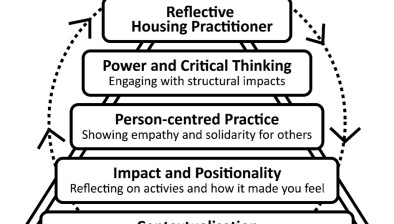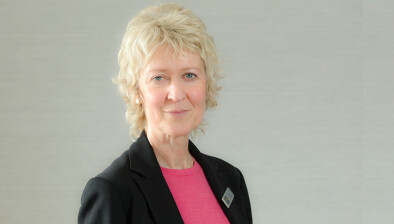Michael McLaughlin: Housing Service Design Champions
SFHA’s social insight lead Michael McLaughlin on the recent Housing Service Design Champions Training.

Michael McLaughlin
Members of SFHA’s innovation community, which includes SFHA members and staff, recently took part in an exciting three-day training course delivered by the Scottish Digital Academy.
The Housing Service Design Champions training was facilitated by Hazel White and Mike Press from Open Change. Dhruv Sharma, User Research Lead at the Scottish Government, joined the training by video call and explained the regional context of housing service design as well as what the vision for a Scottish approach to service.
Whilst I knew that part in the training would be a great way to get to know our members and learn about a topic I would like to incorporate into my work, I accept my sheer ignorance in pondering that perhaps the most innovative working was the methods our members would have used to convince their managers to allow them to have three consecutive days out the office. On the contrary, the training was based on modern, yet completely practical and innovative techniques, and all participants gave positive feedback and left the training with a desire to further develop service design.
I would have been unable to confidently define the meaning of service design prior to 26 February, but now I would be happy to refer to it as the principles that allow the design and delivery of services to be based on the needs of the people who use the service. I also concur with Hazel White’s assertion that it really is, basically, the codification of common sense.
Hazel and Mike’s energetic delivery as well as their in depth knowledge allowed us to learn practical techniques such as user research, project scoping, personas, journey mapping, ideation, and a particularly excellent introduction to prototyping. Using our members’ housing experience, as well as the tools and skills we were learning during the course, we were able to map out a step-by-step approach which enabled the teams in the training to design and deliver a prototype service that meets the needs of users.
As a newcomer to a formal design setting, the training was extremely valuable. It was also great to see the knowledge and understanding of service design that many of our members already had, and, with their experience, we were able to work through our design brief – How can we design a more age friendly public transport service? The tools and guidance given over the three days enhanced attendees skills and provided them with a framework to take these back to their organisations.
We discussed where we would like to implement some of the new techniques that we learned, and, given our members’ interest and some history of innovation in their roles, it will be great to see how this provoking, engaging and collaborative approach to service design will be taken forward. There was some discussion about getting the group together in the coming months to do exactly that, and with SFHA’s Innovation Hub the perfect place to share examples of successful innovative service design. It’s definitely worth getting in touch with innovation@sfha.co.uk to allow others to learn from your experiences.
The SFHA staff who took part thoroughly enjoyed the training. Gemma Connell, our new Innovation and Future Thinking Project Support Co-ordinator, took the opportunity to build her skills and confidence and is looking forward to her role in supporting the Innovation and Future Thinking Programme.
Sarah Hill, SFHA Design Assistant, said: “As a designer, with some existing knowledge of service design, I was intrigued to learn more and to pick up some new ideas I could apply to my role. The training did not disappoint, and I’m now armed with lots of service design methods and tools as well as tips on how to facilitate effective sessions.
“I’m really looking forward to using these in my day-to-day work and, hopefully, to sharing them with SFHA members.”
SFHA will look at providing more opportunities for our members, as part of the Innovation and Future Thinking Programme, to bring the group together again and also to give others a chance to share learning experiences in implementing service design into their work.







